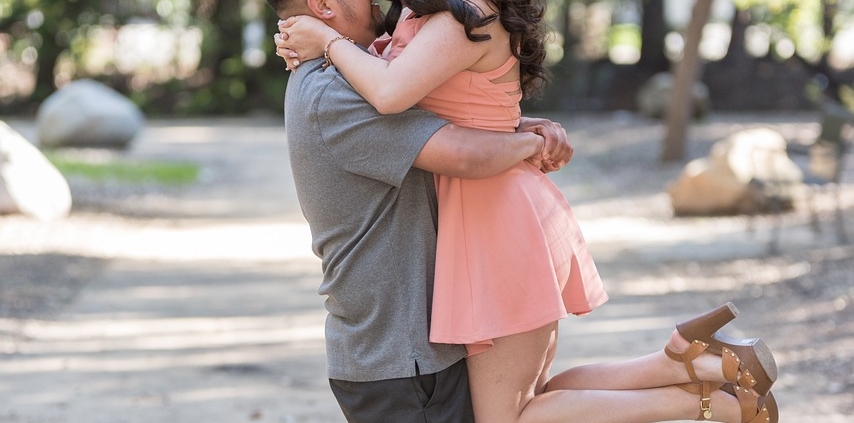First responders are the backbone of our communities, selflessly serving and protecting us in our most vulnerable moments. However, the weight of their responsibilities often comes with immense physical, emotional, and psychological strain. For many first responders and their partners, addiction can become a means of coping with these pressures, creating a cycle that’s difficult to break. At Couples Rehab in Orange County, we understand the unique challenges faced by first responders and their loved ones. That’s why we offer specialized addiction treatment designed to support couples navigating these struggles together.
The Unique Challenges of First Responders
Police officers, firefighters, paramedics, and other emergency personnel face daily exposure to high-stress, life-threatening situations. These experiences can lead to chronic stress, anxiety, depression, and post-traumatic stress disorder (PTSD). For many first responders, substance use becomes a coping mechanism for managing these intense emotions.
Adding to the complexity is the impact of their work on their relationships. Long hours, unpredictable schedules, and the emotional toll of the job often lead to strained communication and disconnected partnerships. Couples may turn to alcohol or drugs to alleviate stress, unintentionally reinforcing unhealthy habits that deepen addiction.
At Couples Rehab in Orange County, we recognize the importance of addressing both individual and relational challenges. Our tailored approach focuses on helping first responders and their partners heal as individuals and as a team, fostering resilience and recovery.
Why Specialized Treatment Matters
General addiction treatment programs may not fully address the distinct needs of first responders. Specialized rehab for first responders considers the following:
- Trauma-Informed Care: First responders often experience trauma that can contribute to addiction. Trauma-informed care ensures that treatment is sensitive to these experiences and focuses on healing from the root causes of substance use.
- Confidentiality and Trust: Fear of stigma or professional repercussions can prevent first responders from seeking help. A program like Couples Rehab in Orange County ensures discretion, allowing individuals to focus on recovery without fear of judgment.
- Peer Support: Being surrounded by others who understand the demands of first-responder life fosters a sense of camaraderie and shared understanding, which can be invaluable during the recovery process.
Comprehensive Addiction Treatment for Couples
At Couples Rehab in Orange County, we believe that recovery is most effective when approached holistically. Our programs are designed to address the physical, emotional, and relational aspects of addiction, ensuring that both partners receive the support they need.
1. Individualized Treatment Plans
No two individuals or relationships are the same, which is why we create personalized treatment plans tailored to the unique needs of first responders and their partners. By conducting comprehensive assessments, we identify the underlying factors contributing to addiction and develop strategies to address them effectively.
2. Dual Diagnosis Treatment
Many first responders face co-occurring mental health disorders, such as PTSD or depression, alongside addiction. Our dual diagnosis treatment ensures that these conditions are treated simultaneously, promoting lasting recovery and improved overall well-being.
3. Couples Therapy and Counseling
Strong, healthy relationships play a vital role in long-term recovery. Our couples therapy sessions focus on rebuilding trust, improving communication, and fostering mutual support. Through evidence-based approaches like Emotionally Focused Therapy (EFT) and Cognitive Behavioral Therapy (CBT), couples can address the relational dynamics that contribute to addiction and learn healthier ways to navigate challenges together.
4. Trauma-Focused Therapies
Recognizing that trauma often underpins addiction, we offer specialized therapies like Eye Movement Desensitization and Reprocessing (EMDR) and trauma-focused CBT. These approaches help first responders process traumatic experiences in a safe and supportive environment, reducing their reliance on substances as a coping mechanism.
5. Family Involvement
Addiction impacts not just the couple but the entire family. Our programs incorporate family therapy sessions to address the broader relational dynamics and create a strong support system for long-term recovery.
Why Choose Couples Rehab in Orange County?
Located in the heart of Orange County, Couples Rehab provides a serene and supportive environment designed for healing and growth. Here’s what sets our program apart:
- Experienced Professionals: Our team includes therapists, counselors, and medical staff with extensive experience in treating first responders and their families.
- Customized Care: We understand that every couple’s journey is unique, and our programs reflect that.
- Beautiful Location: Orange County offers a tranquil setting that promotes relaxation and reflection, aiding the recovery process.
- Strong Focus on Aftercare: Recovery doesn’t end when treatment does. Our aftercare programs provide ongoing support to help couples maintain their progress and prevent relapse.
The Benefits of Couples Rehab for First Responders
Rehab is about more than overcoming addiction; it’s about building a healthier, more fulfilling life. Couples rehab offers first responders and their partners the opportunity to:
- Strengthen Their Relationship: By addressing addiction and its impact on the partnership, couples can rebuild trust and deepen their connection.
- Learn Healthy Coping Mechanisms: Therapy provides tools for managing stress, emotions, and triggers in a constructive way.
- Enhance Communication Skills: Effective communication is essential for maintaining a strong relationship, especially during recovery.
- Foster Long-Term Sobriety: Supporting each other through the recovery process increases the likelihood of sustained sobriety.
Addressing the Stigma of Seeking Help
One of the biggest barriers for first responders is the stigma associated with addiction and mental health challenges. Many worry that seeking treatment will be seen as a sign of weakness or could jeopardize their career.
At Couples Rehab in Orange County, we strive to create a judgment-free space where first responders feel safe and supported. By normalizing conversations around addiction and mental health, we aim to break down the barriers that prevent individuals from seeking the help they need.
What to Expect During Treatment
Embarking on the journey to recovery can feel overwhelming, but knowing what to expect can ease anxieties. At Couples Rehab, the treatment process typically includes:
- Intake and Assessment: A thorough evaluation to understand your needs, goals, and challenges.
- Detox (if needed): Medically supervised detox to ensure safety and comfort during the withdrawal process.
- Therapy and Counseling: A combination of individual, couples, and group therapy sessions tailored to your unique situation.
- Skill-Building Workshops: Sessions focused on stress management, conflict resolution, and relapse prevention.
- Aftercare Planning: A comprehensive plan to support your ongoing recovery after completing the program.

The Importance of Seeking Help
Addiction doesn’t just affect the individual struggling; it impacts their partner, family, and community. For first responders, the stakes are even higher. Seeking treatment isn’t a sign of failure—it’s a courageous step toward healing and a brighter future.
At Couples Rehab in Orange County, we’re committed to helping first responders and their partners reclaim their lives. Through compassionate care, evidence-based treatments, and a supportive environment, we empower couples to overcome addiction and build a foundation for lasting recovery.
Frequently Asked Questions (FAQs) for Couples Rehab in Orange County
1. What is couples rehab, and how is it different from individual rehab?
Couples rehab is a specialized addiction treatment program designed for partners who are both seeking recovery. Unlike individual rehab, it addresses addiction within the context of a relationship, focusing on rebuilding trust, improving communication, and fostering mutual support. At Couples Rehab in Orange County, we provide tailored therapies that strengthen both individual recovery and the partnership.
2. Why is specialized rehab important for first responders and their partners?
First responders face unique challenges, including exposure to trauma, high-stress environments, and demanding schedules. These factors often contribute to addiction and strain on relationships. A specialized rehab like Couples Rehab in Orange County offers trauma-informed care, dual diagnosis treatment, and therapies tailored to the specific needs of first responders, ensuring comprehensive recovery for individuals and couples.
3. What types of addiction do you treat at Couples Rehab in Orange County?
We treat a wide range of substance use disorders, including addiction to alcohol, opioids, prescription medications, stimulants, and more. Our programs are designed to address the physical, emotional, and relational aspects of addiction, providing a holistic path to recovery for first responders and their partners.
4. Do you offer detox services as part of your treatment program?
Yes, we provide medically supervised detox services for individuals who need to safely withdraw from substances before beginning therapy. At Couples Rehab in Orange County, our detox programs prioritize comfort and safety, ensuring a smooth transition into the therapeutic phase of treatment.
5. What therapies are included in your couples rehab programs?
Our programs include a variety of evidence-based therapies, such as:
- Individual therapy to address personal triggers and challenges.
- Couples therapy to rebuild trust and improve communication.
- Trauma-focused therapies, including EMDR and trauma-focused CBT.
- Group therapy for shared experiences and support.
- Skill-building workshops for relapse prevention and conflict resolution.
6. Is couples rehab suitable if only one partner struggles with addiction?
Yes. Couples rehab can still be beneficial if only one partner is experiencing addiction. Our programs address how addiction impacts the relationship and help the non-using partner provide effective support while maintaining their own well-being.
7. How does your program maintain confidentiality for first responders?
We understand the importance of privacy, particularly for first responders concerned about professional repercussions or stigma. Couples Rehab in Orange County operates with strict confidentiality protocols, ensuring that all personal and treatment-related information remains secure.
8. How long does couples rehab typically last?
The duration of rehab varies depending on individual needs and goals. On average, treatment programs at Couples Rehab in Orange County range from 30 to 90 days. We also offer extended care and aftercare planning to support long-term recovery.
9. Does your rehab center address mental health issues like PTSD and anxiety?
Yes. Many first responders experience co-occurring mental health conditions, such as PTSD, anxiety, or depression. Our dual diagnosis treatment ensures that these issues are addressed alongside addiction, providing a comprehensive approach to healing for both partners.
10. How can couples begin the admission process at Couples Rehab in Orange County?
Starting your journey with us is simple. Contact our admissions team via phone or through our website to discuss your situation and complete an initial assessment. We’ll guide you through every step, from verifying insurance coverage to developing a personalized treatment plan tailored to your needs as first responders and partners.
Start Your Journey Today
If you or your partner is a first responder struggling with addiction, know that help is available. Couples Rehab in Orange County is here to guide you every step of the way. Contact us today to learn more about our specialized programs and take the first step toward a healthier, happier future—together.











